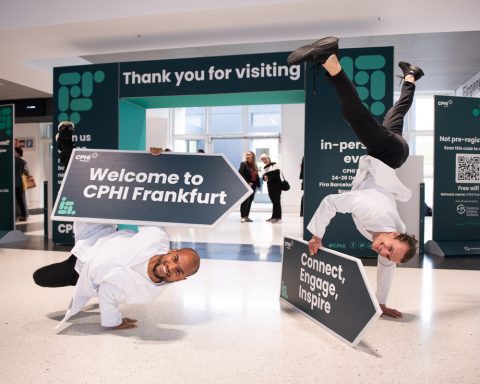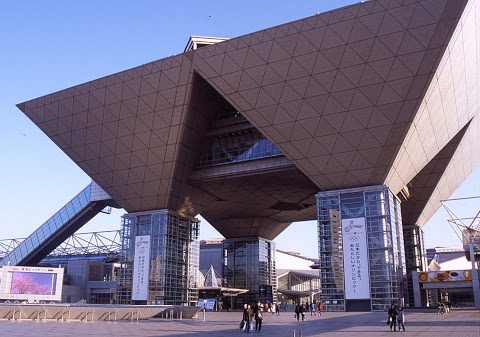CPhI Middle East expert Emad Shabbir, Director at EMAD Trade House, states favorable conditions and legislative regulations in Saudi Arabia are resulting in a boom of manufacturers and CMOs partnerships with international pharma companies. With the strategic cooperation between regional generic companies and multinational pharma companies, driving increased local production.
Experts believe ahead of the second CPhI MEA (16-18 September, 2019) – where nearly 4,900 professionals from over 270 companies will attend – the opportunities in the region are rapidly opening-up. “We are witness to this trend first hand, as CPhI MEA is already one of the fastest growing editions in the CPhI series, with an increasing number of international attendees looking for manufacturing partners. Similarly, we’re seeing a rise in ingredients suppliers targeting the region, and the supply chain here is maturing quickly. There are tremendous opportunities in the MEA pharma market, but with such complexities, it’s vital we act as platform to facilitate connections between regional and multinational companies.” commented Cara Turner, Brand Director at Informa.
Shabbir identified in the GCC (Gulf Cooperation Council) region, there are 35-40 medium sized pharma manufacturers, with at least 10-15 new plants being built. These manufacturers are working with a wide range of products, with a big focus on biotechs and biosimilar products. Areas highlighted for potential further growth are antibiotics, injectables, IV solutions, and DPI’s (Dry Powder Inhalation).
In Saudi Arabia, almost every generic producer is also acting as a CMO but there are no dedicated CMOs. This has led large multinational companies, who want to trade in the Middle East market, to either set up their own manufacturing facilities or to use local generic companies as CMOs–Shabbir
As a consequence, Shabbir predicts a rise in partnerships in the GCC between local generic companies and multinational pharma companies as means to reduce financial costs and increase efficiency. Currently, a lot of multinational companies already have marketing and sales offices located in the Middle East, providing them with a good understanding of the market. Governments in the region are pushing for increased local manufacturing with imported drugs suffering from high tariffed premiums. This leaves international companies with two options; either building their own manufacturing facilities and selling the product on the market on their own or partnering with local CMOs. The latter represents a quicker route to market for international companies and many are turning to generic companies in the region acting as CMOs.
Shabbir states that Saudi Arabia is still the central pharmaceutical market in the Middle East because of the high demand for drugs as a result of government tendering. Currently, Saudi Arabia government purchases big contracts of products in bulk, and then distributes the drugs to their hospitals, pharmacies, and other Middle Eastern Countries. By creating a system in which they buy in bulk, manufactures target Saudi Arabia. Additionally, the government has made regulations and toll duties on imported drugs, encouraging products from local manufacturers. As the government has a close interaction with pharma companies, it does guarantee a good standard as the Saudi FDA enforces a strict regulation and compliance terms.
“With the lack of local APIs, there is a greater demand for ingredient providers from API mainstays China and India, as well as providers from regions such as Korea and Europe. Interestingly, there is an increasing number of manufacturers from Central Asia and North Africa coming to CPhI MEA looking for ingredients partners, so it’s very much become a regional hub now.” Added Turner.
CMOs are supplying outside of GCC to Yemen, Iran, and Syria, and hoping to expand to South Africa. Presently, they are not supplying to self-sufficient countries such as Turkey and Egypt, but there might be future opportunities for trade in Europe.
CPhI MEA, sponsored and partnered by The Ministry of Health and Prevention (MoHAP), will be held at ADNEC (Abu Dhabi National Exhibitions Company) and will include five co-located events – ICSE, FDF, InnoPack, and P-MEC – covering the entire supply chain from ingredients and contracts services, to machinery, packaging and finished dosages.
About CPhI
CPhI drives growth and innovation at every step of the global pharmaceutical supply chain from drug discovery to finished dosage. Through exhibitions, conferences and online communities, CPhI brings together more than 100,000 pharmaceutical professionals each year to network, identify business opportunities and expand the global market. CPhI hosts events in Europe, Korea, China, India, Japan, South East Asia, North America, and the Middle East and Africa. Co-locating with ICSE for contract services; P-MEC for machinery, equipment & technology; InnoPack for pharmaceutical packaging; bioLIVE for biopharma; and Finished Dosage Formulation for every aspect of the finished dosage supply chain.








